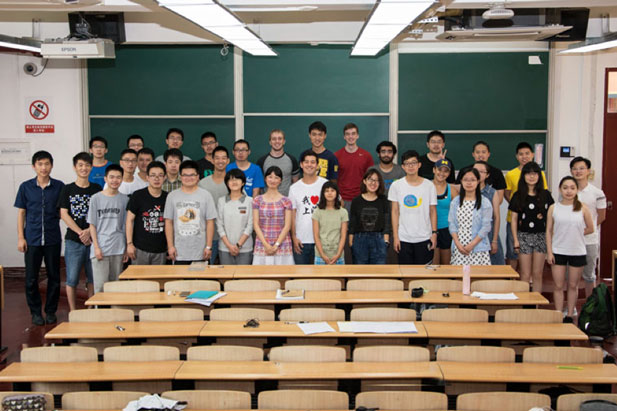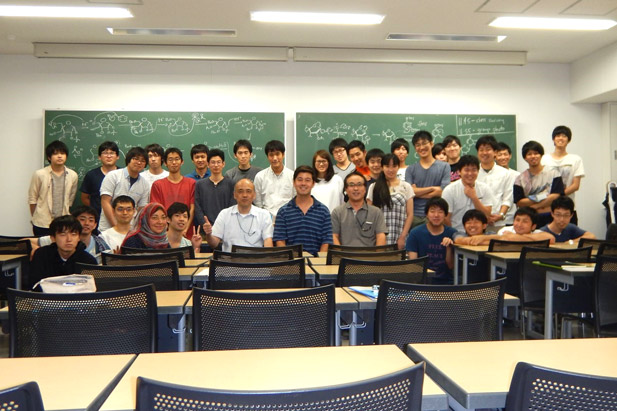Faculty of Science professor helping UOIT strengthen its international presence
Jean-Paul Desaulniers teaching summer courses in China and Japan
August 15, 2016

Chemistry associate professor Jean-Paul Desaulniers of the University of Ontario Institute of Technology’s (UOIT) Faculty of Science (FSci) has returned from a trip to Asia where he spent two weeks teaching in China and one week in Japan.
“In recent years, a number of Chinese universities have been offering their students intensive, English-language and discipline-based short courses during brief two-to-four week summer terms,” says Dr. Desaulniers, who is also the FSci Undergraduate Program Director at UOIT. “In Japan, many institutions are becoming more global by increasing the interaction of students and faculty with overseas institutions.”
This year, the Zhiyuan Honors College at Shanghai Jiao Tong University (SJTU) in China offered a pair of such courses in July. Dr. Desaulniers team-taught a Chemical Biology course with Professor Brian Coppola of the University of Michigan in Ann Arbor.
“The Chemical Biology course is designed around active classroom problem-solving and discussion of advanced topics for undergraduate students,” says Dr. Desaulniers, who also leads UOIT’s Chemical Biology research program. “Students have a thorough command of the subject material. In class they were very interactive, frequently sitting in different locations, and discussing potential solutions with their colleagues.”
“It is important to provide students access to global education,” says Professor Huai Sun, SJTU Program Director. “Learning in a cross-cultural setting is essential for training our future leaders.”
Professor Desaulniers is a former postdoctoral associate at Michigan, where he was a member of Michigan’s Future Faculty Member program in the Department of Chemistry. He worked closely with Professor Coppola, who has recently taught at Chinese universities and developed student exchange programs with these institutions.
While in Japan, Professor Desaulniers taught the one-week intensive course Topics in Organic Chemistry at the Department of Applied Chemistry at Kyushu Institute of Technology (Kyutech). This marked the first time a chemistry course was taught in English language at Kyutech.

“In Japan, high-level science and technologies are taught exclusively in Japanese, so Professor Desaulniers’ class was a good opportunity for our students to learn chemistry in English,” says Kyutech Professor Mitsuru Kitamura. “Our institution enjoys a strong relationship with UOIT and we hope to develop opportunities for student exchange programs in the future.”
As UOIT expands its international ties, Professor Desaulniers hopes to take a page from his Michigan colleague by bringing UOIT students along to participate in these types of courses in Asia.
“When our faculty members go abroad and work with partners overseas, they create new opportunities for our students,” says Scott Clerk, Program Manager, UOIT International office. “We look forward to working with Dr. Desaulniers to send our students for learning experiences in China and Japan.”



